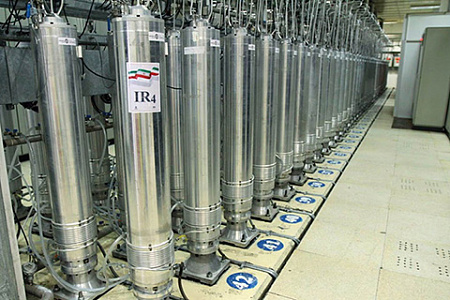
The administration of US President Donald Trump is ready to conclude a “very reliable” agreement with Iran in the coming weeks. This announcement was made by Trump, commenting on the progress of the nuclear negotiations. He stressed that the topic of the military operation against the Islamic Republic, which Israeli Prime Minister Benjamin Netanyahu raised with him last week, was inappropriate in such circumstances. According to some reports, Tehran is ready to briefly freeze the uranium enrichment program, and this was one of the obstacles in the dialogue.
Speaking to reporters at the White House, Trump said that the United States and Iran are “conducting very good negotiations.” Separately, he suggested that in the next couple of weeks, the parties to the negotiations may conclude some kind of agreement.
“We can resolve this (the problem of the Iranian atom. – NG) with the help of a very reliable document, very reliable – with inspections and without trust,” the US president announced. “I don’t trust anyone.” So, no trust. I want it to be very reliable so that we can come with inspectors (to inspect Iran’s nuclear facilities. – “NG”). We can take anything we want, we can blow up anything we want, but no one will be killed. We can blow up the lab, but there won’t be anyone in it.”
Answering a question from reporters, Trump confirmed that the topic of a possible operation against Iran, which, according to a number of indications, has recently been prepared by the Israeli side, was raised during a telephone conversation with Netanyahu last week. “I told him (the Israeli Prime Minister. – NG), what to do now (initiate bombing of the Iranian infrastructure. – “NG”) is inappropriate, because we are very close to a decision that could fail at any moment,– the head of the White House informed. – Everything can change from one phone call. But now, I think they are (representatives of the Iranian leadership. – NG) want to make a deal, and if we can make it, we’ll save a lot of lives.”
White House officials who spoke to CNN on condition of anonymity explained that an agreement could indeed be signed with Tehran as early as next week, when a new round of negotiations is due to take place. It follows from the comments of the CNN interlocutors that this will be a general agreement, which will set out specific guidelines for the implementation of the deal. The document will also outline a route for discussing technical details related to the functioning of the Iranian nuclear program. CNN sources explain that the fate of the entire Iranian uranium enrichment program is still in limbo: the United States insists on dismantling it, and the Iranians do not want to concede in this.
However, sources in Iran told Reuters that at the next meeting, Tehran is ready to offer Washington a compromise option. He assumes that the Islamic Republic will freeze its enrichment program for a year and agree to export all its highly enriched uranium abroad. The Iranian leadership expects that in return, the Trump administration will lift some particularly painful sanctions, especially those related to blocking government revenues from oil exports. “Tehran wants its funds to be redirected to Iran without any requirements or restrictions. If this means lifting some sanctions, then it should be done,” the source told Reuters.
The Iranian Foreign Ministry tried to reject the agency’s report. The official representative of the republic’s foreign ministry, Esmail Bagai, stressed that his country would never abandon its uranium enrichment program, and the Reuters material was based on fake information. However, Bagai’s words may well be a tactical move. It is important for Tehran that the negotiation process is not disrupted by its key regional opponent, Israel. Netanyahu has many years of experience in undermining diplomatic efforts between the United States and Iran. Such attempts, for example, took place before the conclusion of the original 2015 nuclear deal, the Joint Comprehensive Plan of Action.
In the Persian Gulf, they are now afraid that Israel has not abandoned the military scenario against Iran. Thus, the leaders of Saudi Arabia, Qatar and the United Arab Emirates, in personal contacts with Trump during his Middle East tour, interceded for Iran and supported the idea of concluding a deal, Axios reports. At the same time, they strongly opposed Israeli attacks on Iran’s nuclear facilities. They expressed concern that due to a possible confrontation in the region, they could become the target of retaliatory attacks from Iran, because it is on the territory of the Arabian countries that US military bases are located. According to Axios, the fact that the Persian Gulf countries would suffer the most from the war was the main argument of their leaders.
According to the Director General of the IAEA, Rafael Grossi, he regularly communicates with each of the parties to the nuclear negotiations. According to his observations, there is no final decision on concluding any deal between Tehran and Washington yet.
